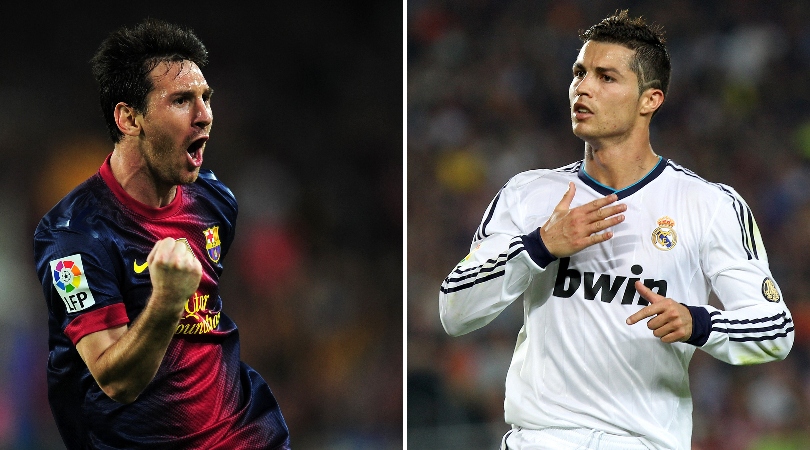How England really can win by learning from Germany… and stealing from Pep Guardiola
International football isn’t an environment for originality, writes Thore Haugstad – so Gareth Southgate shouldn’t be afraid to base his ideas on pre-existing concepts
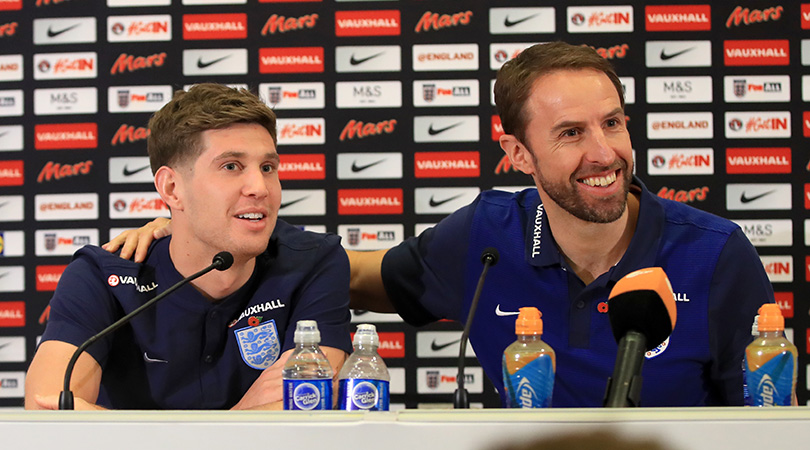
There is no copyright on ideas in football, which is why England could blossom under Gareth Southgate. For a good example, look only at Germany.
The sense of tactical originality prized at club level is rarely seen in national teams. So hard is it for international coaches to install new, elaborate concepts that most don’t even try. And nor should they: rather than innovate, the trick of the trade has become to imitate.
Particularly in recent years, the winning coaches have managed to transplant large chunks of the strongest domestic teams to their national sides. By using the same players and even replicating tactics and systems, they have overcome the greatest obstacle that international football presents.
The key for Southgate is thus not to create something new, but to copy and paste.
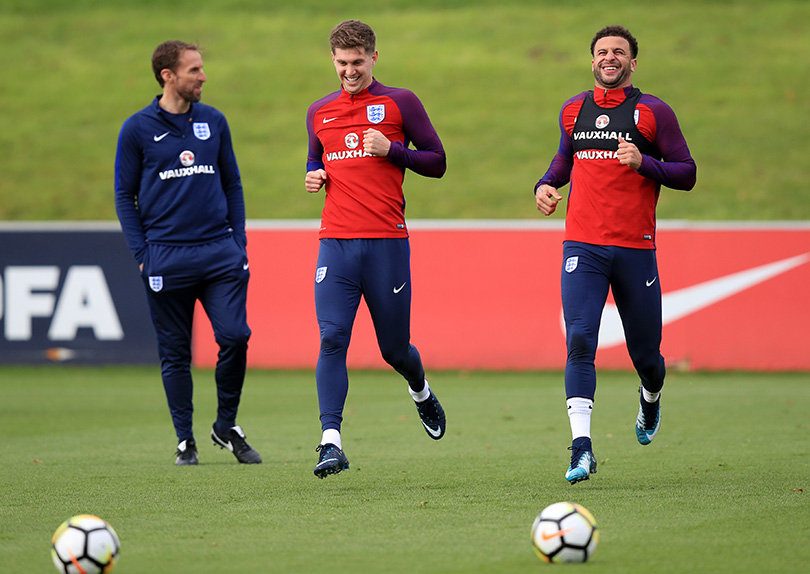
A bunch of strangers
The big obstacle in question is time. National team coaches hardly get to work with their own players and, when they do, packed domestic schedules have drained legs and minds. So little time is spent on the training ground that you could argue the job is less about coaching than psychology and man management.
No wonder international football has fallen so far behind the club game – even the top teams can be out of synch.
Get FourFourTwo Newsletter
The best features, fun and footballing quizzes, straight to your inbox every week.
If the players can sometimes seem like strangers who have hardly played together, it’s because they are. They all lack the time to forge the cohesion and habits that hallmark the best club sides. If Pep Guardiola needed a year to install his style at Manchester City, imagine the chances of a coach who sees his players every odd month.
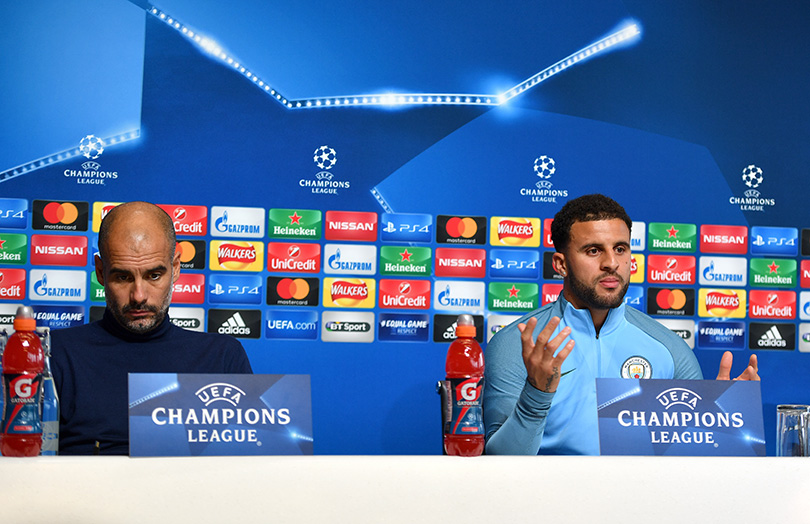
What, then, is the solution? To use the habits that have already been created, of course: rummage the domestic game, steal the best ideas and glue them together as well as possible.
Barcelona in disguise
Such intellectual theft has underpinned some memorable teams.
At the 1974 World Cup, the Netherlands based their Total Football on the philosophy and personnel of the great Ajax side, complemented by Feyenoord players. Italy won the 1982 World Cup with a core of Juventus stars. In the final of Euro 1988, the Soviet Union used eight players from Dynamo Kiev.
In many countries this trick has since become increasingly relevant, because as the rich get richer, the best talent is being snapped up by a smaller number of elite clubs. And the more players play together, the more habits can be transferred to the national side.
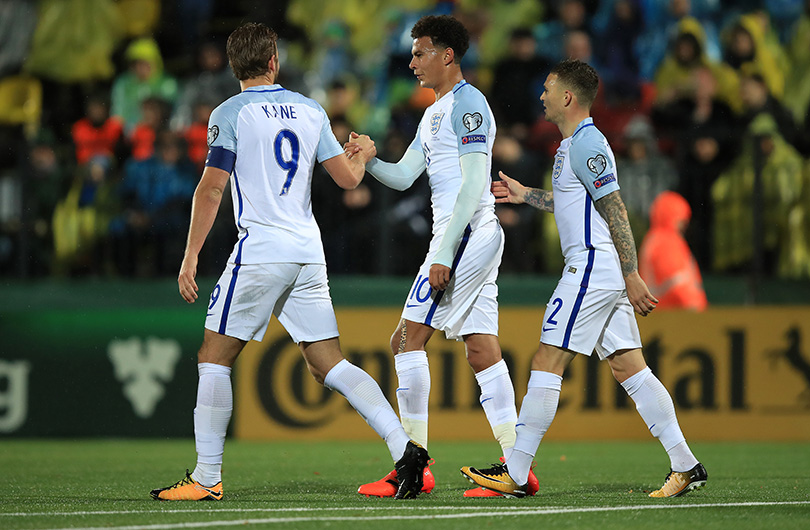
This has been particularly evident in the last two World Cups. At South Africa 2010, Spain coach Vicente del Bosque built on the possession-based legacy of Luis Aragones by drawing heavily on the Barcelona side that had won the last two league titles.
Del Bosque did not only use their players, but copied their entire style – six Barça players started the final, in which Spain passed their way to victory. “Barça won the World Cup,” said the club’s outgoing president Joan Laporta. “It’s just that they were wearing the wrong shirts.”
By borrowing from the domestic scene, Del Bosque exploited the tactical and positional principles that Guardiola had drilled into Barça’s players for the last two years. The same applied at Euro 2012, where five Blaugrana players started the final. This time, Del Bosque even imported the false nine role that Guardiola had give to Lionel Messi, playing Cesc Fabregas up front. “Pep is an important figure who has given a lot to our football,” Del Bosque said that same year.
The Bavarian connection
Two years later, Germany pulled off a comparable triumph. Not only did they build their team around Bayern Munich players, but imported specific tactical concepts as well.
Germany now see more of the ball than Spain. Since the 2010 World Cup, where they dazzled as a counter-attacking side, Die Mannschaft have ratcheted up their possession average
When Louis van Gaal took charge of Bayern in 2009, the Bavarians began using a more possession-based style. That continued under Jupp Heynckes, before Guardiola took it to new extremes from 2013 to 2016. All along, Germany coach Joachim Low developed the national team along similar lines.
In fact, Germany now see more of the ball than Spain. Since the 2010 World Cup, where they dazzled as a counter-attacking side, Die Mannschaft have ratcheted up their possession average throughout Euro 2012 (56.9%), the 2014 World Cup (57.7%) and Euro 2016 (63%).
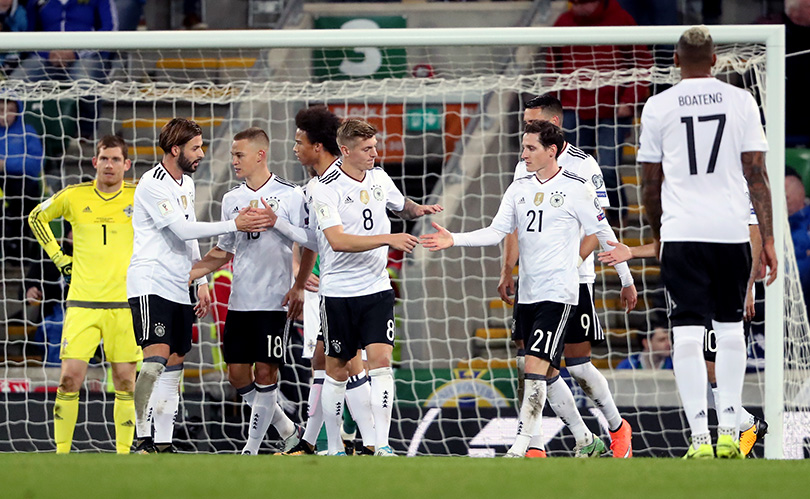
At Brazil 2014, Low also copied specific ideas. Just as Guardiola had moved Philipp Lahm into central midfield, so did he. Since Manuel Neuer had become a sweeper-keeper for Bayern, he became so for Germany as well. “Guardiola’s ideas are superb,” said Low.
Copying the masters
These success stories leave an inviting template for Southgate. The Premier League has a less defined club hierarchy than La Liga and the Bundesliga, meaning the England players are spread across a larger number of clubs, but it still has many ideas begging to be stolen.
Some have already noted that Southgate should switch to three at the back, the defensive system now prevalent among England’s top teams. Used regularly by Tottenham, Manchester City, Chelsea and Arsenal, it has become the default for most of England’s defenders – a change the national team should mirror.

FourFourTwo’s 100 Best Teenagers in the World 2017
It makes perfect sense. The more such ideas that England can import, the more automatic their actions will become. A month ago, Southgate duly announced that England would use three at the back. “You have such little time to work with the players,” he said, “that the more clarity they have under pressure, the likelier it is they’ll know what to fall back on.”
Another development is that more top teams in England now play out from the back. This is another aspect Southgate wants to copy, to the extent that he dropped Chris Smalling from the latest squad over his limited ability on the ball. “We want to play a certain way,” Southgate explained.
This does seem the right way to go for the England boss, and he would certainly have been foolish to ignore the body of work left behind by minds such as Guardiola, Mauricio Pochettino and Antonio Conte.
Southgate may not get many points for originality but, given England’s recent tournament record, that should be the least of his worries.

